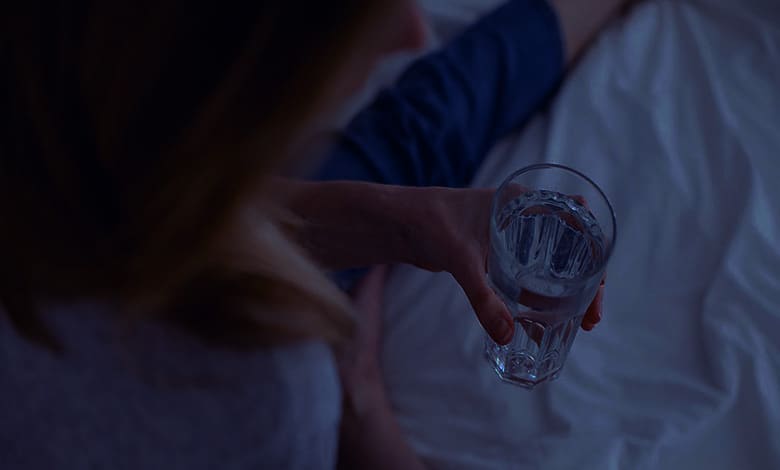
Have you noticed that water tastes better at night? When we taste water, it does have a specific taste. But there are no particular taste buds for water on the tongue. The reason we can taste it is that we change the concentration of salt on the tongue. Also, water has different minerals: calcium, magnesium, potassium, etc.
All this chemical makeup of your specific saliva makes water taste different to one person than it does to another person. But the purer the water, the fewer dissolved ions it has, and the more bitter or different tasting the water will taste.
Why does water taste better at night?
The ground is the primary source of water, where water is away from daylight and heat. So it can keep its naturality and purity. Here are some reasons for better taste:
Hydration: Our bodies naturally become slightly dehydrated overnight as we sleep. When we wake up in the morning, our thirst receptors are more active, making us more sensitive to the taste of water. As a result, water consumed at night can taste particularly refreshing and satisfying.
Cleansed Palate: During sleep, our taste buds and olfactory receptors can undergo a period of rest and regeneration. This can lead to a cleaner palate in the morning, making us more receptive to the subtle flavors of water.
Quieter Environment: At night, the surrounding environment is quieter and more peaceful. This can create a sense of tranquility and relaxation, enhancing our overall enjoyment of the sensory experience, including the taste of water.
Temperature: Nighttime temperatures are usually cooler, and cool water can be more refreshing and pleasant to drink than water at warmer temperatures.
Psychological Factors: Our perceptions and expectations can influence how we experience taste. Some may associate drinking water at night with self-care, relaxation, or hydration after a long day, which can positively impact their taste perception.
We can create a ground environment where light and heat are absent at night. Water tastes better at night due to 3 main reasons: thirst, coldness, and saltiness. All these reasons are related to each other.
Coldness
Cold water tastes better than hot water. During the daytime, the sun and other heat sources remain active. So, water can not cool sometimes and adequately absorb heat, making water taste bad. At night or darkened room, the absorbed daylight ions replace by heavier nighttime ions. So water can remove heat and keep cool.
Water is good at dissolving many substances, including gases. At night, water gradually absorbs some carbon dioxide from the air. The water and carbon dioxide molecules react to form carbonic acid. It lowers the temperature and pH of the water, making it a slightly acidic taste.
Thirst
Dehydration makes us thirsty. At night, we take our largest meal. So our body needs a huge amount of water, which creates dehydration. When we dehydrate/are thirsty, our whole body craves water. So drinking water at this time feels tasty and refreshing psychologically. Also, when we are thirsty, our saliva remains in tiny amounts. Saliva dissolves with water and affects a bad taste. So less saliva makes the water tastier.
Saltiness
Due to heavy meals, the sodium intake is high at night, making us thirsty. So, at this time, water tastes better. Let’s talk about how taste works. Our tongue has about 10,000 taste buds. Those taste buds can sense five tastes: sweet, salty, sour, bitter, and savory umami. To taste something, your food has to dissolve into your saliva. Then those small molecules (sugar or salt) dissolve into your taste buds, get absorbed there, and attach to taste receptors.
Once they’ve attached there, that’s when you get the sensation of taste. But it turns out that water doesn’t have any taste receptors. So it should mean that water doesn’t taste anything! That’s wrong. For example, scientist Linda Bartok’s book exposes people’s tongues to a continuous concentration of 0.5% table salt.
After around one minute, she stopped the test and had them drink water with 0.5% sodium chloride or salt. The people couldn’t tell there was any salt in there. So their tongue adapted to the environment of a 0.5% salt concentration. They weren’t able to taste salt after that.
So once you’re adapted to a specific taste and increase the concentration of that taste, it will taste more intense than if you hadn’t adapted to the taste. Once exposed to 0.5% salt for a minute, you take a break and drink a lower concentration. It has a different taste altogether. So every person has adapted to the saliva in their mouth, so they don’t taste it anymore.
More water taste facts:
- Alcohol consumption can temporarily affect taste perception. Alcohol can dull or desensitize certain taste receptors, including those responsible for detecting bitterness. When these receptors are less active, it can create a relative increase in sensitivity to sweetness, making water taste sweeter than usual.
- During a workout, your body loses water through sweating, which can lead to dehydration. When dehydrated, your body craves fluids, and water becomes incredibly refreshing. The sensation of quenching your thirst and replenishing your body’s water content can make water taste perfect after exercise.
- Glass is an inert material that does not impart any flavors or odors to the water. Unlike other materials, such as plastic or metal, glass does not introduce additional tastes or odors that may alter the perception of water’s natural taste.
Read more similar topics:
Why Does Bottled Water Taste Bad?
Why Does Cold Water Taste Better?
What Causes The Sea Water Salty?
Why Does Salt Water Dehydrate You?
How Long Can You Survive Drinking Sea Water?
How Does Water Get Into Coconut?
Table of Contents
